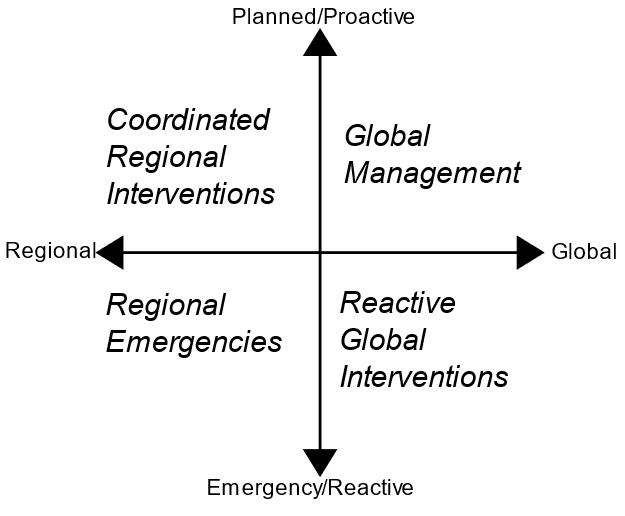Abstract
Solar geoengineering, also known as Solar Radiation Modification (SRM), has been proposed to alter Earth’s radiative balance to reduce the effects of anthropogenic climate change. SRM has been identified as a research priority, as it has been shown to effectively reduce surface temperatures, while substantial uncertainties remain around side effects and impacts. Global modeling studies of SRM have often relied on idealized scenarios to understand the physical processes of interventions and their widespread impacts. These extreme or idealized scenarios are not directly policy-relevant and are often physically implausible (such as imposing global solar reduction to counter the warming of an instantaneous quadrupling of CO2). The climatic and ecological impacts of politically relevant and potentially plausible SRM approaches have rarely been modeled and assessed. Nevertheless, commentators and policymakers often falsely assume that idealized or extreme scenarios are proposed solutions to climate change. This paper proposes 18 scenarios that appear to be broadly plausible from political and Earth System perspectives and encompass futures that could be both warnings or perhaps desirable. We place these scenarios into four groups following broader strategic contexts: (1) Global Management; (2) Regional Emergencies; (3) Coordinated Regional Interventions; and (4) Reactive Global Interventions. For each scenario, relevant model experiments are proposed. Some may be performed with existing setups of global climate models, while others require further specification. Developing and performing these model experiments – and assessing likely resulting impacts on society and ecosystems – would be essential to inform public debate and policymakers on the real-world issues surrounding SRM.
References

This work is licensed under a Creative Commons Attribution-NonCommercial 4.0 International License.
Copyright (c) 2022 Andrew Lockley, Yangyang Xu, Simone Tilmes, Masahiro Sugiyama, Dale Rothman, Adrian Hindes


